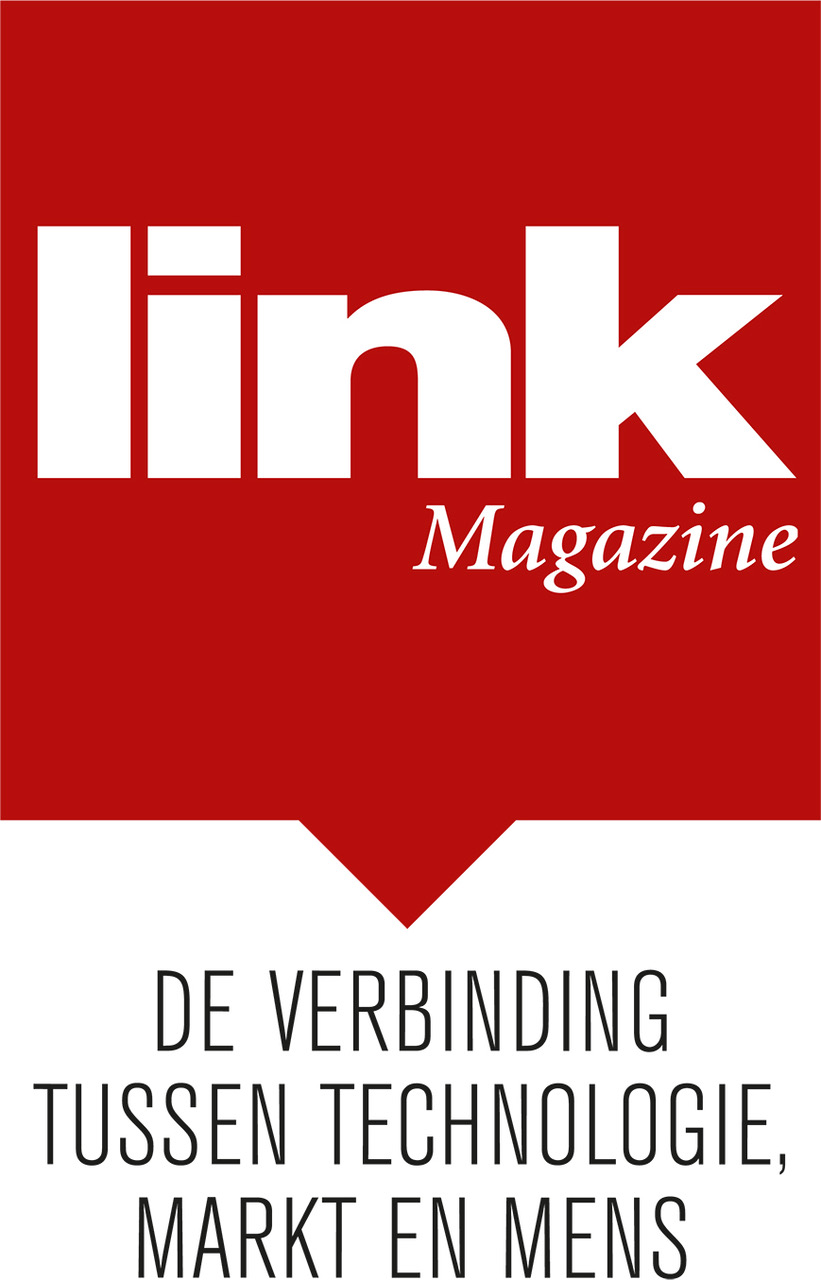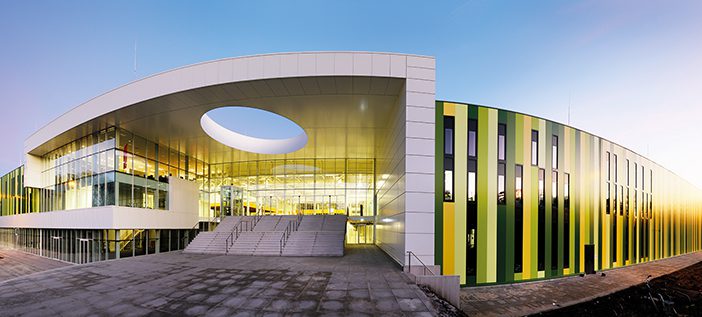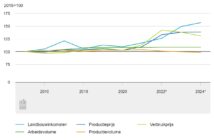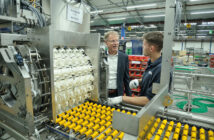The ‘Factory of the Future’ calls for sophisticated production, including smart logistics and packaging management. The Brainport Industries Campus is home to a consortium working together on Advanced Manufacturing Logistics (AML). How do you achieve a state-of-the-art AML system on campus, with logistic flows that optimally support production from start to finish, day and night? ‘What do we need to achieve this? Absolute faith in what we are doing and a lot of mutual trust.’
‘We can watch everything quite openly: there is complete transparency’
‘Naturally there is a business model, but everyone involved is really sticking their neck out’
Slowly but surely, Brainport Industries Campus (BIC) is growing to become a unique place for high-tech industry. BIC is primarily focused on production featuring a high degree of diversity and complexity in low volumes. Everything is new at the campus near Eindhoven Airport. There is a plenty that needs to be worked out, including the logistic flows and packing methods. BIC is bringing together more and more companies under one roof and is definitely not a regular multi-tenant commercial building. ‘It is not a random collection of firms; we are building a true ecosystem here in which companies and also educational institutions work together and innovate together’, says Frank Jonkers, regional sales director of Rubix.
BIC is the site of the ‘Factory of the Future’ innovation programme. There are several field labs here, including the Advanced Manufacturing Logistics field lab. Participating in them are Rubix, IJssel Technologie, KMWE, Brainport Industries, Faes Packaging Concepts, Yaskawa, Grenzenbach and the universities of Eindhoven and Rotterdam.
On the right track
The magic words here are: 4PL and 4PP 4th Party Logistics and 4th Party Packaging. The chain directors make sure everything in the supply chain that is connected with logistics is kept on the right track and arrives and is eventually sent out optimally packed. The parties involved in the AML field lab have been thinking intensively for some time about optimum supply and the best way of working for all the organisations at the BIC. For example, in this project IJssel is optimising the IT processes and sending the large volumes of required data to the cloud. Rubix has been a top player in Europe for years, including in the delivery of (spare) parts and industrial supplies and the performance of maintenance on machines. Faes Group, and specifically the business unit Faes Packaging Concepts, looks at the role of packaging or rather smart cargo carriers, with all sorts of coding and RFID technology. KMWE, an expert in advanced milling, sheet metal fabrication and assembly, is one of the main drivers behind the campus.
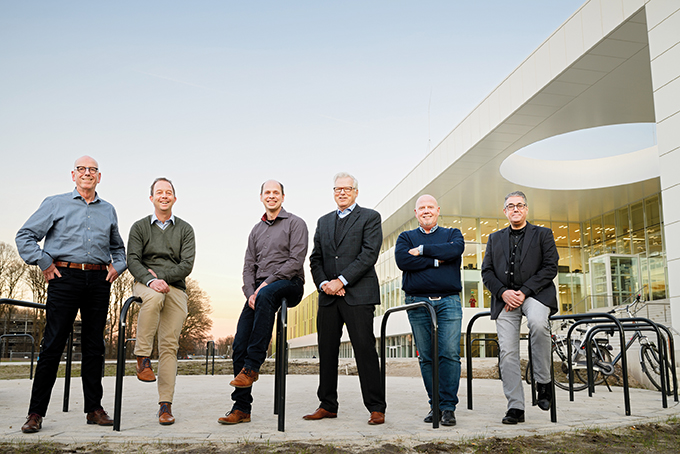
From left to right: Ben Hamers (Faes Group), Bart Vorselaars (Rubix), Bart van Dijck (Faes Group), Meino Noordenbox (Rubix), Frank Jonkers (Rubix) and Johan Faes (Faes Group). Photos: Bart van Overbeeke
Understanding the heart of the matter
‘Connectivity is key here. That requires strong partners who understand the heart of the matter’, says Johan Faes, CEO/owner of the Faes Group. Smart industry calls for cooperation and thinking outside the box. KMWE was already a customer of Faes Group. Faes joined the AML field lab because what is required here goes far beyond supplying packaging. It is about handling products throughout the chain. ‘There are not yet too many situations in which we can apply our far-reaching ideas about 4PP’, says Ben Hammers, commercial manager at Faes. ‘That way of thinking is not yet really embedded in manufacturing industry.’
The parties started by first exploring in detail what they actually meant by AML at BIC. This resulted in very open conversations involving sharing ideas, identifying synergies and deciding on the design of chain management. Johan Faes: ‘The first concept we came up with was ‘making life easier’, followed by ‘servitisation’, and now we are talking about optimally facilitating the ecosystem.’ Companies want to outsource their non-core activities and really focus on their own core. ‘They want to deploy their – scarce – professionals in the most targeted way possible.’
Goods in and out 24/7
Suppose supplier KMWE receives a big order. Soon after, by definition all kinds of things need to be supplied for production. This requires the purchasing of parts delivered to exactly the right place at exactly the right time, packed (or unpacked) in such a way that everything can be processed efficiently. And when the product or module is ready, it needs to be taken away and shipped to the customer in the right way and in the right packaging.How do you do that intelligently, not only for KMWE but for all the parties at the campus – and preferably largely automatically, including the use of AGVs (automated guided vehicles) that move through the BIC along their own paths and following their own routing? The production department needs to be able to count on the supply, removal and storage of materials and tools, returns and end products at exactly the right time, to/from the right machine, 24/7. Throughput times are falling, reliability is increasing. Residual flows are returned for reuse. Meino Noordenbos, CEO Benelux of Rubix: ‘We are building a kind of blockchain, a platform in which all the processes are linked together and information is continually coming from the cloud to regulate those logistic flows. We have made it work from ERP system to ERP system with all the goods, money, information and core processes’.
Watching
Staying with the KMWE example: the firm purchases materials from all over. ‘We can watch everything quite openly: there is complete transparency in terms of parts, prices and other order information. That takes a little getting used to for everyone: a firm can continue to operate in a closed, separated way, or open up the information to its partners. Ultimately, we purchase all the parts they need to build their products as optimally as possible.’ The smart packaging is the responsibility of Faes, while KMWE purchases its own steel. This openness ultimately results in purchasing benefits and a reduction in the number of suppliers. Bart Vorselaars, key account manager and overall project manager at Rubix: ‘Naturally, we respect agreements which KMWE has with its suppliers. But we want to take purchasing to the next level by using smart technology for KMWE and all the other parties at the campus.’
Information hub
Ideally, the service providers will have access to all the order flows of all the companies at the BIC. A logistics control tower is being built, a central information hub that will gather and integrate information from all kinds of sources and present and distribute it in a manageable way. Alongside the logistics control tower, there is a sub-control tower for packaging management. Johan Faes: ‘Based on the detailed information in the cloud, we can take action. In the past, you sent each other purchase orders and order confirmations; now we get that information from the cloud.’ In terms of packaging, these days reduce, reuse, recycle are built in right from the start, adds Ben Hamers. ‘Which movements are there from A to B, which materials are needed, how can we design that in the most sustainable way? We are building a uniform packaging range with the minimum number of different packaging types and carriers.’By carriers, he means, for example, AGVs, pallets, crates and wheeled containers.
Hurdle
All the parties involved in the field lab acknowledge that data-sharing is often still a hurdle to be overcome. How do we do that? Isn’t that scary? What will we be sharing? This approach at the BIC calls for absolute faith and trust in one another. ‘Plus the odd contract’ adds one of the partners at the table, to laughter. It’s so different from how it was before. ‘We take ownership seriously and we don’t take liberties. It’s not about profit maximisation in the short term, it’s about working together closely for years. It’s a bit like a marriage.’
All the parties that use the logistic services available at the campus must be prepared to share data. In the future, that might become a condition for locating at the campus, but it isn’t the case yet. A lot has already been developed and prepared in the field lab. A roadmap has been drawn up for how to achieve a state-of-the-art AML system. Ben Hamers: ‘We have a kind of menu with all the options in terms of logistics and packaging. Organisations at the campus can make use of that and buy services. We offer a basic package but also custom services.’
Sticking your neck out
It is a question of making a start and continuing to improve together. Hamers: ‘All of these efforts demand huge investments. Naturally there is a business model behind it. But everyone involved is really sticking their neck out to make those investments, in a real belief that it’s going to work out. Vorselaars: ‘Naturally we looked at examples elsewhere. There is a lot of talk about AML in Germany; in the Netherlands, there is a will to work together and really make it work.’ Of course there are bottlenecks: for example, developments in machine automation, mobile robots and AGVs are coming thick and fast. ‘We need to keep on ensuring that everything stays compatible.’
Bart van Dijck, project manager at FPC: ‘We know what we’re doing and where we want to get to. It calls for a lot of thinking outside the box, but in a couple of years you’ll see more of this.’ And perhaps the parties involved will roll out their AML system for the BIC in other high-tech clusters.
Handling logistical complexity
Edward Voncken, CEO of KMWE: ‘Logistics at the campus are handled by a single central provider. This is based on the belief that the logistics processes between companies can be organised much more efficiently. We want to take logistics to a new level, just like technology. The supply chain is becoming ever more complex. A larger number of companies adds value. We aim to handle that logistical complexity by working together in smart ways. We want to move towards delivery and collection of products just in time and in exactly the right place. By definition, cooperation means sharing knowledge and information in a smart way. All the systems must be tuned to one another. Previously it was fragmented, from now on it will be much more coordinated.’
